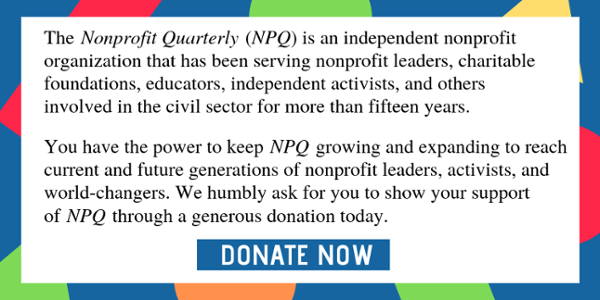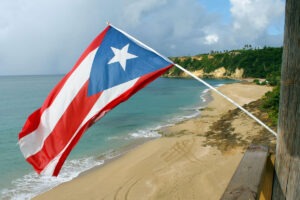
December 19, 2018; Grist
Since covering Puerto Rico in the aftermath of Hurricane Maria, I’ve noticed the underlying current of violence against women increasing under the weight of recovery. Almost biweekly now, my social media shows a news article from the island about women who are found dead, with the common refrain, “otra más” (yet another). It appears, as Grist’s Greta Moran writes, that “as the world heats up, it’s also becoming more violent,” particularly for women.
We know by now those who are already economically vulnerable feel the impact of climate change most. When one overlaps that with the fact that women who face poverty are also already more vulnerable to intimate partner violence, and that shelters are often also hit by the climate change, it takes on the form of an epidemic. So, it’s not a good thing that the Violence Against Women Act, which funds “critical services for survivors, including legal assistance, rape crisis centers, domestic violence centers, and transitional housing,” is set to expire this Friday.
The Act is not perfect; 85 percent of the funding goes to the criminal justice system. Samantha Majic, associate professor of political science at John Jay College says, “Women are not subject to intimate partner violence just because men are bad, but also because they don’t have economic options that make it easier to leave the situation.”
Sign up for our free newsletters
Subscribe to NPQ's newsletters to have our top stories delivered directly to your inbox.
By signing up, you agree to our privacy policy and terms of use, and to receive messages from NPQ and our partners.
Jennifer First, a doctoral student at the University of Missouri, has developed a framework that includes cross-training for intimate partner violence and environmental disasters that allows a response “with the most vulnerable people in mind.”
Readers may recall our story earlier this year contrasting an equity approach to rebuilding Puerto Rico to a non-equity one. The Puerto Rico Community Foundation (Fundación Comunitaria de Puerto Rico), which had the equity approach, started the recovery funding with domestic violence shelters. Its president, Nelson Colón, said, “As a foundation, you need to first recognize that there is a deep-rooted problem of domestic violence in Puerto Rico. That is an inequity of power issue.”
As environmental disasters become something for which we are increasingly forced to prepare and strategize, it is important to address the various equity dimensions and to face the ways our systems of inequality undergird and exacerbate them. Understanding our communities, as Colón does his, is a first step. Moving beyond criminalization to economic and gender justice is essential. The VAWA’s near-expiration is a chance for a do-over.—Cyndi Suarez














